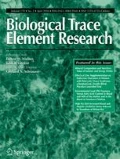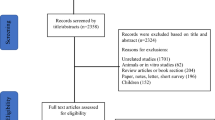Abstract
To date, no study has critically reviewed the current literature on the association between magnesium (Mg) and sleep health. Therefore, we carried out a systematic review to assess the association between Mg and sleep patterns in adults’ population through observational and interventional studies. We searched for relevant studies through PubMed (http://www.ncbi.nlm.nih.gov/pubmed), Scopus (http://www.scopus.com), and ISI Web of Science (http://www.webofscience.com) from the earliest available date until November 2021. Eligibility criteria for study selection were guided by the following components identified using the PI(E)CO (Population, Intervention (Exposure), Comparison, Outcome) framework: P (adult population), I(E) (high dietary intake or supplementation of Mg), C (low dietary intake of Mg or placebo group), and O (sleep pattern including sleep duration, sleep-onset latency, night awakenings, sleep stages, and sleep phases). The present study involved 7,582 subjects from 9 published cross-sectional, cohort, and RCT systematically reviewed the possible links between Mg and sleep quality (daytime falling asleep, sleepiness, snoring, and sleep duration) in an adult population. Observational studies suggested an association between Mg statuses and sleep quality, while the RCTs reported contradictory findings. This systematic review revealed an association between magnesium status and sleep quality (daytime falling asleep, sleepiness, snoring, and sleep duration) according to the observational studies, while the randomized clinical trials showed an uncertain association between magnesium supplementation and sleep disorders. The association between dietary magnesium and sleep patterns needs well-designed randomized clinical trials with a larger sample size and longer follow-up time (more than 12 weeks) to further clarify the relationship.

Similar content being viewed by others
Data Availability
The data that support the findings of this study are available from the corresponding author upon reasonable request.
References
Simonelli G, Marshall NS, Grillakis A, Miller CB, Hoyos CM, Glozier N (2018) Sleep health epidemiology in low and middle-income countries: a systematic review and meta-analysis of the prevalence of poor sleep quality and sleep duration. Sleep Health 4(3):239–250
Buxton OM, Marcelli E (2010) Short and long sleep are positively associated with obesity, diabetes, hypertension, and cardiovascular disease among adults in the United States. Soc Sci Med 71(5):1027–1036
Cappuccio FP, D’Elia L, Strazzullo P, Miller MA (2010) Sleep duration and all-cause mortality: a systematic review and meta-analysis of prospective studies. Sleep 33(5):585–592
Gallicchio L, Kalesan B (2009) Sleep duration and mortality: a systematic review and meta-analysis. J Sleep Res 18(2):148–158
Åkerstedt T, Fredlund P, Gillberg M, Jansson B (2002) A prospective study of fatal occupational accidents–relationship to sleeping difficulties and occupational factors. J Sleep Res 11(1):69–71
Pandi-Perumal SR, Verster JC, Kayumov L, Lowe AD, Santana MGd, Pires MLN et al (2006) Sleep disorders, sleepiness and traffic safety: a public health menace. Braz J Med Biol Res 39(7):863–71
Afaghi A, O’Connor H, Chow CM (2007) High-glycemic-index carbohydrate meals shorten sleep onset. Am J Clin Nutr 85(2):426–430
Cao Y, Wittert G, Taylor AW, Adams R, Shi Z (2016) Associations between macronutrient intake and obstructive sleep apnoea as well as self-reported sleep symptoms: results from a cohort of community dwelling Australian men. Nutrients 8(4):207
St-Onge M-P, Roberts A, Shechter A, Choudhury AR (2016) Fiber and saturated fat are associated with sleep arousals and slow wave sleep. J Clin Sleep Med 12(1):19–24
Ji X, Grandner MA, Liu J (2017) The relationship between micronutrient status and sleep patterns: a systematic review. Public Health Nutr 20(4):687–701
Wacker WE, Parisi AF (1968) Magnesium metabolism. N Engl J Med 278(13):712–717
Volpe SL (2013) Magnesium in disease prevention and overall health. Adv Nutr 4(3):378S-S383
Cao Y, Zhen S, Taylor AW, Appleton S, Atlantis E, Shi Z (2018) Magnesium intake and sleep disorder symptoms: findings from the Jiangsu Nutrition Study of Chinese adults at five-year follow-up. Nutrients 10(10):1354
Cakir B, Kılınç FN, Uyar GÖ, Özenir Ç, Ekici EM, Karaismailoğlu E (2020) The relationship between sleep duration, sleep quality and dietary intake in adults. Sleep Biol Rhythms 18(1):49–57
Frusso R, Zarate M, Augustovski F, Rubinstein A (1999) Magnesium for the treatment of nocturnal leg cramps: a crossover randomized trial. J Fam Pract 48:868–871
Liu G, Weinger JG, Lu Z-L, Xue F, Sadeghpour S (2016) Efficacy and safety of MMFS-01, a synapse density enhancer, for treating cognitive impairment in older adults: a randomized, double-blind, placebo-controlled trial. J Alzheimers Dis 49(4):971–990
Moher D, Liberati A, Tetzlaff J, Altman DG (2010) Preferred reporting items for systematic reviews and meta-analyses: the PRISMA statement. Int J Surg 8(5):336–341
Peterson J, Welch V, Losos M, Tugwell PJ (2011) The Newcastle-Ottawa scale (NOS) for assessing the quality of nonrandomised studies in meta-analyses. Ottawa: Ottawa Hospital Research Institute. 2(1):1–2
Higgins JP, Altman DG, Gøtzsche PC, Jüni P, Moher D, Oxman AD et al (2011) The Cochrane Collaboration’s tool for assessing risk of bias in randomised trials. BMJ 343:d5928
Uhland AM, Kwiecinski GG, DeLuca HF (1992) Normalization of serum calcium restores fertility in vitamin D-deficient male rats. J Nutr 122(6):1338–1344
Lai X, Chen W, Bian X, Wang T, Li J, Wang H et al (2015) Predictors of poor sleep quality and excessive daytime sleepiness in peritoneal dialysis patients. Ren Fail 37(1):61–65
Sato-Mito N, Sasaki S, Murakami K, Okubo H, Takahashi Y, Shibata S et al (2011) The midpoint of sleep is associated with dietary intake and dietary behavior among young Japanese women. Sleep Med 12(3):289–294
Held K, Antonijevic I, Künzel H, Uhr M, Wetter T, Golly I et al (2002) Oral Mg2+ supplementation reverses age-related neuroendocrine and sleep EEG changes in humans. Pharmacopsychiatry 35(04):135–143
Nielsen FH, Johnson LK, Zeng H (2010) Magnesium supplementation improves indicators of low magnesium status and inflammatory stress in adults older than 51 years with poor quality sleep. Magnes Res 23:158–168
Abbasi B, Kimiagar M, Sadeghniiat K, Shirazi MM, Hedayati M, Rashidkhani B (2012) The effect of magnesium supplementation on primary insomnia in elderly: a double-blind placebo-controlled clinical trial. J Res Med Sci 17(12):1161
Peuhkuri K, Sihvola N, Korpela R (2012) Diet promotes sleep duration and quality. Nutr Res 32(5):309–319
Simpson N, Gibbs E, Matheson G (2017) Optimizing sleep to maximize performance: implications and recommendations for elite athletes. Scand J Med Sci Sports 27(3):266–274
Fullagar HH, Duffield R, Skorski S, Coutts AJ, Julian R, Meyer T (2015) Sleep and recovery in team sport: current sleep-related issues facing professional team-sport athletes. Int J Sports Physiol Perform 10(8):950–957
Funding
This research was supported by Isfahan University of Medical Sciences.
Author information
Authors and Affiliations
Contributions
Conception and design: A.A and F.S
Acquisition of data: A.A, F.S, and N.R
Analysis and interpretation of data: A.A, F.S, and N.R
Drafting the manuscript: F.S, N.R, and A.A
Revising it for intellectual content: A.A, F.S, N.R, and R.A
Corresponding author
Ethics declarations
Conflict of Interest
The authors declare no competing interests.
Additional information
Publisher's Note
Springer Nature remains neutral with regard to jurisdictional claims in published maps and institutional affiliations.
Rights and permissions
About this article
Cite this article
Arab, A., Rafie, N., Amani, R. et al. The Role of Magnesium in Sleep Health: a Systematic Review of Available Literature. Biol Trace Elem Res 201, 121–128 (2023). https://doi.org/10.1007/s12011-022-03162-1
Received:
Accepted:
Published:
Issue Date:
DOI: https://doi.org/10.1007/s12011-022-03162-1




